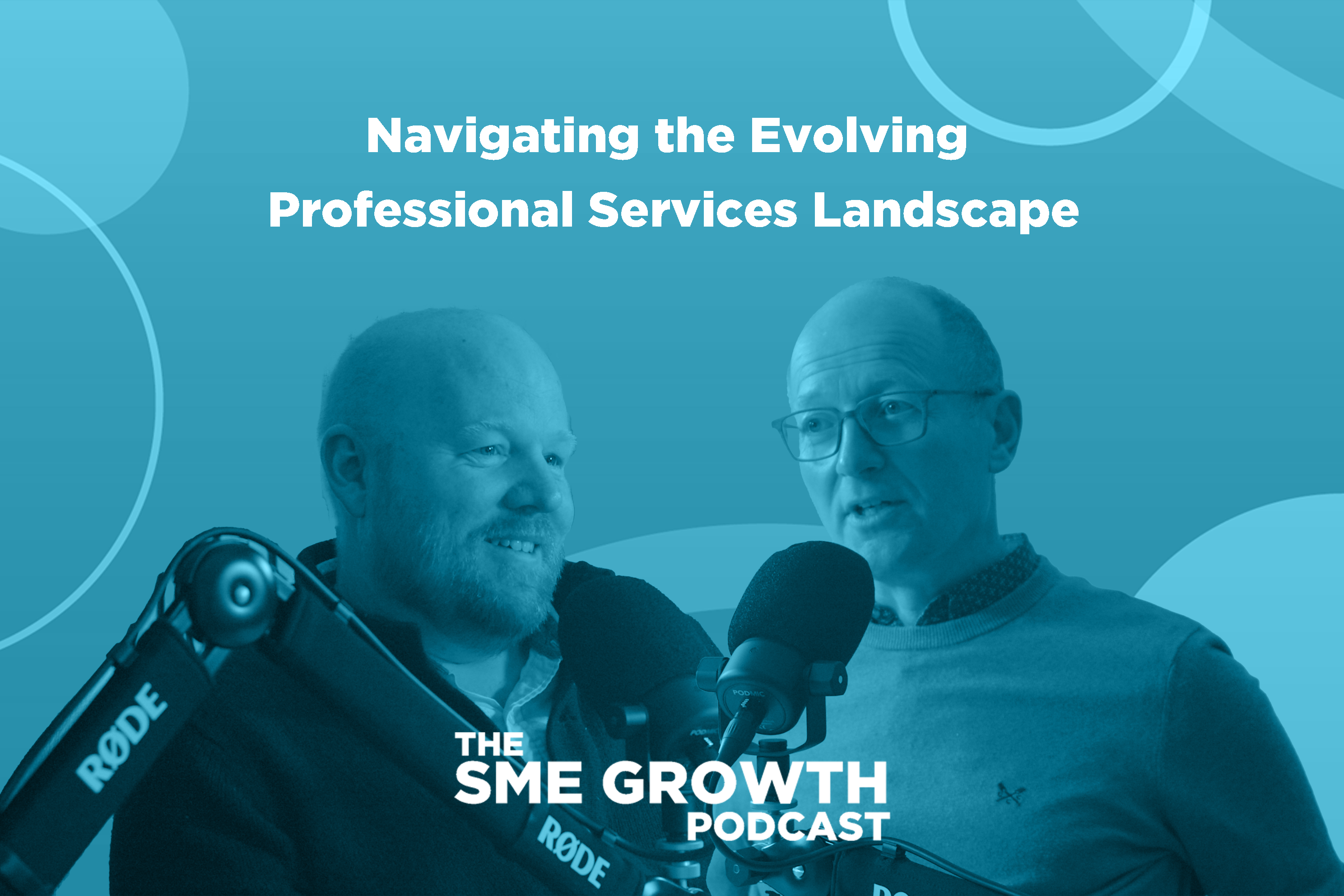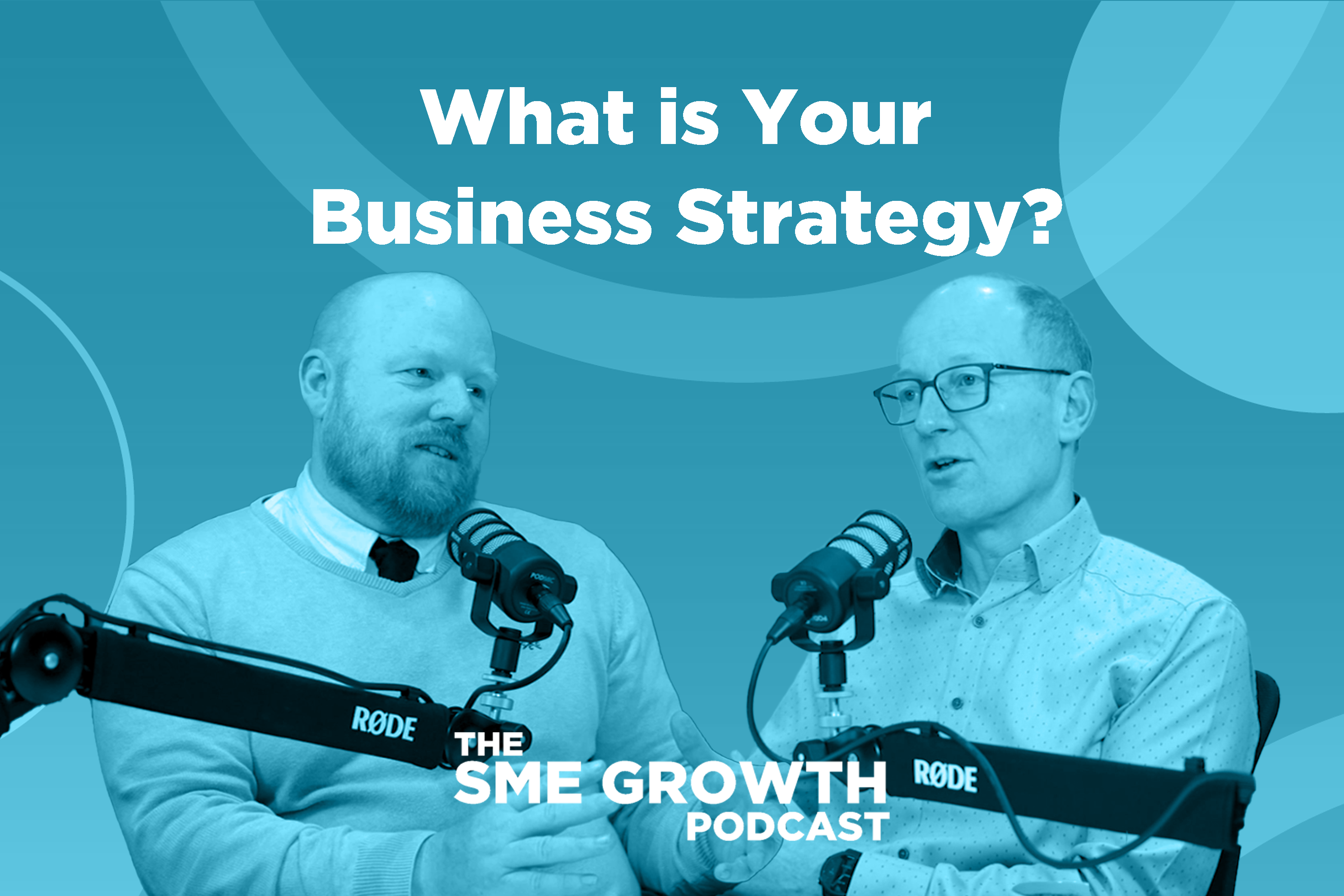Taking Action to Drive Business Growth
Once you've got your vision and strategy nailed, getting on with implementing the growth activity is next. This is the exciting part that every...
Wellmeadow supports ambitious companies with business growth enabled by HubSpot.
We've worked with over 100+ businesses at board-level across sectors such as automotive, manufacturing, healthcare, legal, SaaS, and professional services.

%20(A4).png?width=71&height=100&name=portrait%206-box%20model%20diagram%20(1170%20x%207051%20px)%20(A4).png)

-1.png?width=70&height=70&name=Square%20(1)-1.png)
5 min read
Hannah Hambleton : Updated on November 16, 2023

In the latest episode of The SME Growth Podcast, hosts Dave Parry and Richard Buckle discuss selling strategies in the dynamic, constantly evolving world of professional services firms, sparked by a recent article in the Harvard Business Review. Taking a look at selling styles, selling strategies and the innovative shifts needed in approach for modern selling, we uncover key strategy insights that can also be applied to B2B selling for SMEs.
You can listen to the full episode here.
In the latest episode of The SME Growth Podcast, hosts Dave and Rich explain the new podcast format, which will add a touch of business news at the start of each episode. This will offer a snapshot of the latest developments impacting SMEs. In this week’s episode, the focus will be on the professional services sector.
The podcast highlights a This morning's headline announces a 0.0000 growth in productivity for the last quarter, teetering on the edge of a one-month dip into negative territory. This seemingly lacklustre performance spans across all sectors. In tandem with this, the Monetary Policy Committee (MPC) has chosen to maintain interest rates at 5.25%. This decision suggests that the previously increased rates might be exerting some influence, prompting a collective sigh of relief across all sectors in the business landscape.
Despite these productivity figures and the MPC's decision, there are signs of optimism on the horizon. Dave discusses the mood he’s experienced in recent board meetings, highlighting that concerns regarding b2b sales and hesitant customers have started to dissipate. As we approach the year-end and the anticipation of budget renewals in January, there’s potential for increased optimism in purchasing; and this positive trend aligns with the idea that businesses are gearing up for a dynamic start to 2024.
This forward-looking perspective challenges the notion that the productivity data is entirely reflective of current lacklustre data. A similar sentiment resonates among HubSpot partners, reporting substantial growth and an influx of new projects.
The podcast also discusses the distractions affecting workplace productivity. A staggering statistic reveals that the habit of scrolling on phones and checking social media during work hours is costing the UK economy an incredible £20 billion. The question arises: should we ban scrolling or accept it as part of the new normal?
Amid debates on solutions, it becomes apparent that distractions extend beyond mobile screens. Reports indicate that 83% of people admit to being distracted during in-person meetings, with the figure rising to 85% for online meetings.
The podcast also discusses the growing concerns and risks associated with AI technology, particularly for SME owners. One prominent worry highlighted was the heightened risk of fraud. Dave and Rich discuss sharing their voices online (as many people do on video and podcasts), with the legitimate concern that someone could exploit AI to convincingly mimic them. This could lead to fraudulent activities.
Additionally, the rapid advancements in AI technology, were discussed in the episode; particularly the ability of ChatGPT to now conduct live internet searches in real-time.
This summary of business news highlights that all business, including SMEs must adapt their selling strategies in response to shifting economic dynamics and the evolving work environment. Rich and Dave discuss a recent Harvard Business Review article exploring the shifting landscape of business development within professional services firms.
The article highlighted a transformation in the approach to client relationships and emphasised the need for a fresh perspective in the ever-changing world of business. Rich and Dave discuss the historical success of cultivating a loyal client base and trusted advisor status. However, evidence suggests this traditional model is evolving rapidly. Previously, 76% of buyers preferred to engage with their trusted partners, a figure that has now dwindled to 53%. Projections indicate a further drop to 37% in the next five years.
This signifies a shift in buyer behaviour, with more buyers choosing to explore new options through tenders or recommendations instead of conventional reliance on existing relationships. This is both a threat and an opportunity for professional services firms, offering an opportunity for innovation and growth.
It’s vital for professional services firms to adopt a forward-thinking mindset, embracing innovation and new technologies. This also has huge potential for SMEs to capitalise on this changing landscape, breaking into previously closed off markets.
The podcast shared insights from a research study that interviewed 100 C-suite buyers and numerous professional services partners to identify distinct selling styles. The goal was to categorise individuals into five types. Here's a summary of the five selling styles:
Relying on deep knowledge and experience in a subject, experts don't actively market themselves. They traditionally thrive on their proficiency, but recent stats suggest a decline in the effectiveness of this selling style.
Confidants keep their contacts close, build close friendships and maintain secrecy within the firm.
Debaters challenge ideas consistently, creating an environment of questioning and unsettlement.
This group of sellers offer services with a laid-back approach, suggesting clients don’t have to engage if they don’t want to.
These individuals actively build networks, primarily through social media and LinkedIn. They focus intentionally on business development activities, emphasising consistency and collaboration. Activators invest time in carving out intentional periods each week for focused business development. They also place value on collaboration, challenging the notion of exclusive client ownership.
The podcast highlighted that astonishingly, the first four selling styles , or 80% of styles had a negative correlation with positive outcomes. However, Activators stood out as the fifth style, showcasing a proactive approach, disciplined consistency, and a collaborative mindset in navigating the dynamic landscape of professional services.
Activators focus on building networks primarily through social media, especially LinkedIn, while actively seeking opportunities. The following key strategies and observations were discussed in the podcast:
Time and Discipline: Activators carve out intentional time during the week for focused business development activities.
Collaboration Over Exclusivity: Activators engage in more collaboration, avoiding the mindset of exclusive client ownership.
Proactive Networking: Research shows that Activators convert 35% more opportunities than other styles. The emphasis is on actively building and expanding networks through intentional efforts.
Curating Personalised Experiences: Activators act as personal curators, sending relevant and interesting content to their network. This builds trust and authority.
Spirit of Mutual Help: The focus is on building relationships through genuine assistance and acknowledgement.
Commenting and Engagement: Activators actively comment and engage on social media, particularly LinkedIn, to build connections and relationships. This contributes to the creation of opportunities, such as invitations to events or sharing interesting articles.
Commit, Connect, Create Model: Committing time to business development, connecting through active networking, and creating opportunities by sharing valuable content are key components.
As discussed in The SME Growth Podcast episode, these strategies are not only applicable to professional services but can be relevant across various businesses, including for SMEs.
The podcast draws parallels between professional services selling styles and B2B sales strategies identified in research by the Harvard Business Review. Dave and Rich go on to discuss the evolving dynamics in B2B, where buyers now design solutions before engaging with suppliers, challenging the traditional role of solution designers. This requires a different approach, including identifying disruptors who are buyers open to radical ideas.
In this evolving approach, salespeople are encouraged to put forth provocative concepts and engage with prospects who show a healthy scepticism or interest in unconventional solutions. In B2B sales, avoiding time-consuming discussions with unproductive prospects is crucial, and leveraging mechanisms like podcasts to showcase expertise and pre-qualify contacts is encouraged.
Finally, Dave and Rich urge SME business owners to adopt disruptive strategies and self-reflect on their selling styles, fostering agility and openness to new approaches in both professional services and B2B sales.
https://podcasters.spotify.com/pod/show/wellmeadow

Once you've got your vision and strategy nailed, getting on with implementing the growth activity is next. This is the exciting part that every...

In this episode of The SME Growth Podcast, Dave Parry and Richard Buckle discuss the concept of a business strategy. Learn more about different...

If you haven’t read Marcus Sheridan’s ‘They Ask, You Answer’ yet, you’re missing a trick. Sheridan’s 2017 book retells how he completely revived his...